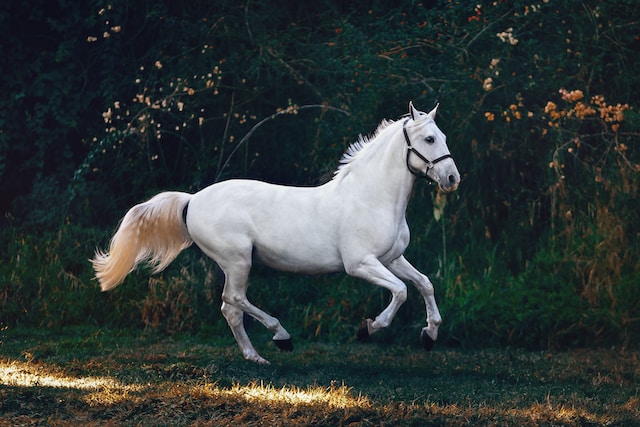
Relevance of Horse Insurance For A Horse Owner
The horse is a large grazing herbivore with typical adaptations for plant-eating: high-crowned teeth, a long digestive tract to digest cellulose and a system that prevents them from storing excess fat. However, horses are unpredictable and can cause damage or injury to people or property. With boarding, vet and farrier costs, training and competition fees, many horse owners need more money stashed away to pay for major health issues or an unexpected loss. Insurance can protect that investment.
Liability Coverage
If a horse you own or care for causes property damage to another person’s car, stable, barn or other structure, you may be held liable. Liability coverage is available on most horse insurance policies and typically pays to repair or replace the damaged property. Many homeowners and farm owners’ policies exclude equine-related activities. If you own or have horses in your care, custody and control, liability coverage is an important addition to any horse insurance policy. After paying board, farrier, vet and competition fees, a horse owner may need more cash saved to pay for the costs associated with a major health issue or surgery. In that case, the loss of use coverage provided by most horse insurance policies will help to ease the financial burden. Generally speaking, most companies offer major medical/surgical and medical assistance (each company calls these different coverages) with limits up to the insured value of the Full Mortality policy and age restrictions.
Loss of Use
Pondering the worst-case scenarios of owning a horse can keep any owner up at night. Fortunately, insurance policies are designed to help ease those fears and provide peace of mind. Typically an add-on to a mortality policy, medical coverage reimburses a percentage of your horse’s value after satisfying any co-pays and deductibles for expenses incurred by non-routine health issues requiring the attention of a veterinarian specializing in large animals. A loss of use claim is settled on a case-by-case basis and requires a veterinarian to verify that your horse can never fulfill its intended activity. This coverage can also be arranged on an income-generating basis, providing reimbursement of a set percentage of your horse’s value should it become permanently unsound for its discipline or level of competition. A thorough vet exam, including x-rays (knees and hocks down), is usually required to obtain this coverage. Often, this policy is offered in conjunction with an external trauma endorsement to a mortality policy or as an independent stand-alone.
Medical Expenses
The medical/surgical coverage on a policy typically pays, subject to any deductibles or co-pays, for the diagnosis and treatment of illness or injury during the policy period. This is similar to human health insurance but for horses, and it can help you avoid the heartbreaking decision of whether or not you can afford to save your horse if he breaks a tendon, develops EPM, collides with a fence, gets kicked or any of the other potential injuries that can happen to horses. A variation of this coverage is loss-of-use coverage, which reimburses a percentage of your horse’s value if an injury ends his career in the discipline identified in the policy. This is often necessary for show hunters and jumpers who rely on the income from their sport to pay for board, vet and farrier bills, as well as competition fees. The actual coverages and limits on policies vary among companies, so always carefully read the fine print.
Replacement Value
Horses represent a significant financial investment, and many have an emotional attachment. While nothing can ease the grief of losing a beloved horse, wise planning can reduce the potential economic impact of such a tragedy. Insurance can provide the peace of mind that comes from knowing that a portion of your losses have been paid for by someone else. It’s worth discussing options with a knowledgeable agent who takes the time to listen and understand your specific circumstances. If you keep your horses at home and don’t travel in a trailer, homeowner’s policies often cover horse liability. However, if you train or board your horses at a barn, the owners may require that you have mortality and major medical coverage. Full mortality policies typically include a value endorsement that pays your horse’s total insured value if it is killed or dies of a covered condition. Some companies also offer extended named perils coverage for horses too old to be eligible for full mortality policies.





